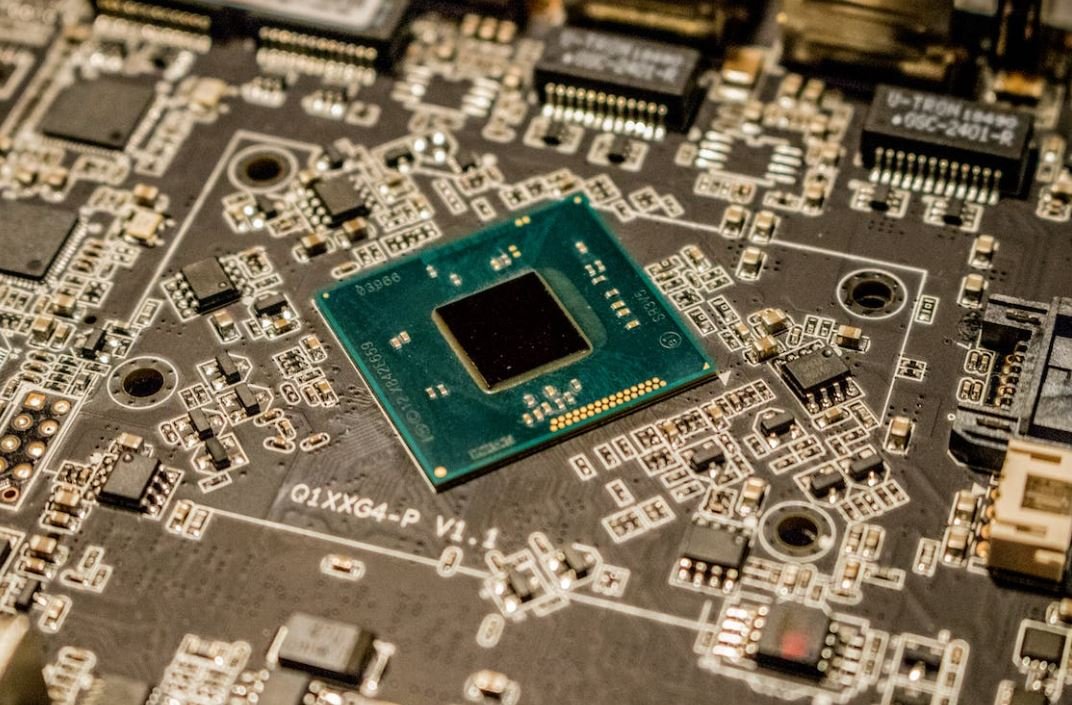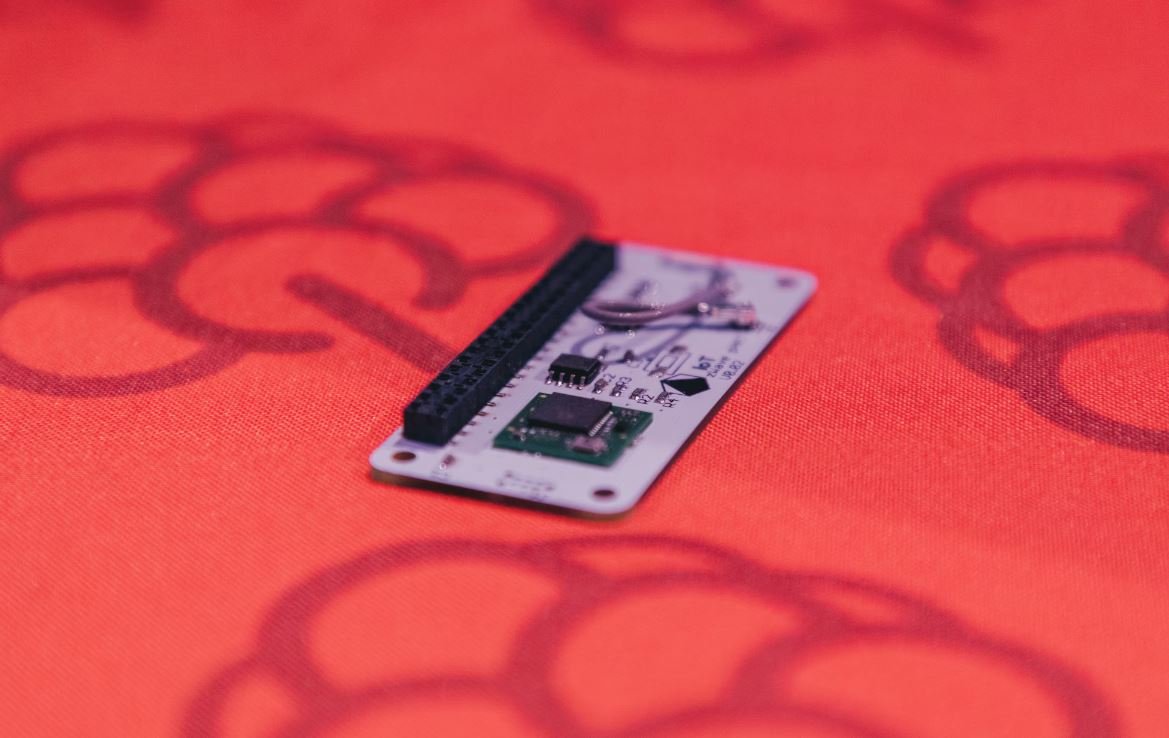Why Am I Producing a Lot of Saliva
Excessive saliva production, also known as hypersalivation or sialorrhea, can be a frustrating and embarrassing condition. It occurs when there is an overproduction of saliva in the mouth, leading to constant drooling or having to spit frequently. While occasional episodes of excess saliva are normal, persistent hypersalivation may indicate an underlying medical condition. This article explores the common causes of excessive salivation and provides valuable information on how to manage it effectively.
Key Takeaways:
- Excessive saliva production can be a sign of an underlying medical condition.
- Hypersalivation can lead to drooling and frequent spitting.
- Managing excessive saliva involves identifying the cause and addressing it accordingly.
There are several potential causes for the excessive production of saliva. One common cause is pregnancy, as hormonal changes can increase saliva production. Likewise, certain medications such as clozapine and pilocarpine can stimulate saliva production as a side effect. Additionally, conditions like gastroesophageal reflux disease (GERD), oral infections, and neurological disorders can contribute to hypersalivation.
Excessive saliva is not always a cause for concern and can often be managed effectively when underlying causes are addressed.
One method of managing hypersalivation is through oral hygiene practices. Regularly brushing your teeth, tongue, and cheeks will help reduce the accumulation of bacteria and prevent oral infections, which can lead to excess saliva. Dental visits for professional cleanings are also essential for maintaining overall oral health.
Another technique to manage excessive saliva is to incorporate good swallowing habits. Pay attention to your swallowing patterns and make an effort to swallow saliva instead of allowing it to accumulate in the mouth. This can help prevent drooling and reduce the need to spit frequently.
Common Causes of Hypersalivation
Excessive saliva production can be triggered by various factors. Here are some common causes:
- Pregnancy: Hormonal changes during pregnancy can cause hypersalivation.
- Medications: Certain medications, such as clozapine and pilocarpine, can increase saliva production as a side effect.
- GERD: Gastroesophageal reflux disease (GERD) can lead to hypersalivation.
- Oral infections: Infections in the mouth, such as gum disease or thrush, can cause excessive saliva.
- Neurological disorders: Conditions like Parkinson’s disease and cerebral palsy may result in hypersalivation.
| Medication | Side Effect |
|---|---|
| Clozapine | Excess saliva production |
| Pilocarpine | Increase in salivary flow |
Managing hypersalivation also involves identifying and addressing any underlying medical conditions. If you suspect that a medication is causing excessive saliva, consult with your healthcare provider to discuss potential alternatives. Similarly, if you have oral infections or GERD, proper treatment can help reduce saliva production.
Managing hypersalivation requires a comprehensive approach that focuses on addressing the underlying causes and adopting lifestyle modifications.
If home remedies and lifestyle changes do not alleviate the symptoms of excessive saliva production, it is essential to consult with a healthcare professional. They can perform a thorough examination and recommend appropriate treatments based on the underlying cause. In some cases, medical interventions, such as medication adjustments, oral devices, or surgical procedures, may be necessary to manage hypersalivation effectively.
Treatment Options for Hypersalivation
Depending on the underlying cause of hypersalivation, several treatment options can be considered:
- Medication adjustments: Changing or modifying the dose of certain medications can help reduce saliva production.
- Oral devices: Using devices like mandibular advancement splints can improve saliva control.
- Botox injections: Injecting botulinum toxin into the salivary glands can temporarily reduce saliva production.
| Treatment Option | Description |
|---|---|
| Medication adjustments | Changing the dosage or type of medication to regulate saliva production. |
| Oral devices | Using specialized dental devices to improve saliva control. |
| Botox injections | Injecting botulinum toxin into salivary glands to reduce saliva production temporarily. |
In conclusion, excessive saliva production can be indicative of an underlying medical condition. Identifying and addressing the cause is crucial in effectively managing hypersalivation. With proper oral hygiene practices, swallowing techniques, and medical interventions when necessary, individuals experiencing excessive saliva can regain control and maintain a comfortable and confident daily life.

Common Misconceptions
Paragraph 1
One common misconception about producing a lot of saliva is that it is always a sign of excessive water consumption. While hydration can indeed affect saliva production, it is not the sole factor. There are various reasons why an individual might have an excessive amount of saliva.
- Dehydration is not the only cause of increased saliva production
- Medications or medical conditions can also lead to excessive saliva
- Dietary habits and certain foods can stimulate saliva production
Paragraph 2
Another misconception is that excessive saliva production is always a sign of an underlying dental problem. While dental issues such as gum disease or infections can cause an increase in saliva, it is not always the case. Often, the root cause of excessive saliva lies beyond dental health.
- Dental problems are not the only cause of excessive saliva
- Conditions like acid reflux can lead to increased saliva production
- Neurological issues can also affect saliva production
Paragraph 3
Some individuals may believe that producing a lot of saliva is a sign of a contagious disease. While certain contagious illnesses can cause an increase in saliva production, it is essential to understand that excessive saliva is not always indicative of a contagious condition. There can be various harmless factors contributing to an excess of saliva.
- Anxiety or stress can lead to increased saliva production
- Smoking or using tobacco products can stimulate saliva production
- Some individuals naturally produce more saliva than others
Paragraph 4
A misconception surrounding saliva production is that it is always related to the mouth and oral health. In reality, saliva serves multiple functions beyond mouth lubrication and digestion. It plays a vital role in overall health, and its production can be influenced by factors beyond the oral cavity.
- Saliva helps protect teeth from decay
- It aids in the digestion of food and the breakdown of starches
- Saliva contains enzymes that facilitate wound healing
Paragraph 5
Finally, some people may believe that there is no way to regulate saliva production. While it is true that some factors influencing saliva production may be out of an individual’s control, there are also methods to manage excessive saliva based on the underlying cause.
- Identifying and addressing the root cause can help regulate saliva production
- Adjusting medication dosages or seeking alternative options may be beneficial
- Practicing stress management techniques can help control saliva production

The Phenomenon of Excessive Saliva Production Explained
Have you ever wondered why you sometimes find yourself producing an unexpectedly large amount of saliva? Perhaps you have experienced it during periods of heightened anxiety or while indulging in certain foods. This article aims to shed some light on this fascinating process, delving into the various factors that can influence excessive saliva production. Below are ten intriguing tables that highlight different aspects of salivation.
The Relationship Between Saliva Production and Age
It is worth exploring how age influences salivation, as the volume of saliva produced varies among different age groups.
| Age Group | Average Amount of Saliva Produced (ml per day) |
|---|---|
| Infants (0-12 months) | 120-180 |
| Children (1-12 years) | 500-1000 |
| Adolescents (13-18 years) | 800-1500 |
| Adults (19-60 years) | 1000-1500 |
| Elderly (61 years and above) | 800-1200 |
Types of Saliva
Not all saliva is created equal! Explore the different types of saliva and their unique characteristics.
| Saliva Type | Function | Composition (%) |
|---|---|---|
| Resting saliva | Moistens the mouth and facilitates speaking | 99.5% water, 0.5% electrolytes and enzymes |
| Stimulated saliva | Aids in digestion and swallowing | 98% water, 2% electrolytes, enzymes, and mucins |
| Reflex saliva | Protects against oral irritants and lubricates the mouth | 95% water, 5% electrolytes, enzymes, mucins, and antibodies |
The Influences of Food on Saliva Production
Our diet can significantly impact the way our salivary glands respond and produce saliva, as depicted in the table below.
| Food Group | Effect on Saliva Production |
|---|---|
| Spicy foods | Increased saliva production due to heat sensation |
| Sour foods | Heightened saliva production to counteract acidity |
| Salty foods | Can lead to dehydration, reducing saliva production |
| Sugary foods | May increase saliva production to aid in digestion |
| Crunchy foods | Chewing stimulates salivary glands, increasing saliva flow |
Saliva and Medications
Certain medications can impact saliva production, resulting in either excessive or reduced salivation.
| Medication | Effect on Saliva Production |
|---|---|
| Anticholinergics | Can cause dry mouth and reduced saliva |
| Antipsychotics | May lead to dry mouth due to reduced salivary flow |
| Anti-anxiety drugs | In rare cases, excessive saliva production may occur |
| Stimulant medications | Enhanced saliva production, causing excessive drooling |
Salivation and Stress Levels
Stress can significantly impact our body’s salivary response. The table below illustrates this intricate relationship.
| Stress Level | Saliva Production |
|---|---|
| Low stress | Normal saliva production within the usual range |
| Moderate stress | Variable saliva production: potential increase or decrease |
| High stress | Excessive saliva production due to increased activation |
Saliva Composition and Proteins
The composition of saliva is incredibly complex, containing numerous proteins with various essential functions.
| Protein Name | Function |
|---|---|
| Amylase | Breaks down complex carbohydrates |
| Lactoferrin | Antimicrobial properties, prevents iron uptake by bacteria |
| Immunoglobulin A (IgA) | Helps protect against pathogens in the oral cavity |
| Lysozyme | Antibacterial enzyme that aids in oral defense |
Saliva and Dental Health
Saliva plays a crucial role in maintaining dental health, as demonstrated in the following table.
| Saliva Function | Impact on Dental Health |
|---|---|
| Neutralizing acids | Prevents tooth decay and enamel erosion |
| Washing away food particles | Reduces the likelihood of plaque formation |
| Encouraging remineralization | Strengthens tooth structure and repairs minuscule damages |
Medical Conditions and Saliva Production
Certain medical conditions can affect saliva production, giving rise to altered states of salivation.
| Medical Condition | Saliva Production |
|---|---|
| Sjögren’s syndrome | Dry mouth due to reduced salivary flow |
| Acid reflux | Increased saliva production as a protective mechanism |
| Parkinson’s disease | Reduced saliva production leading to dry mouth |
| Diabetes | Altered salivary composition affecting saliva viscosity |
The Impact of Smoking on Salivation
Smoking tobacco can have noteworthy effects on saliva production, as outlined in the table below.
| Smoking Habits | Saliva Production |
|---|---|
| Smokers | Reduced saliva flow due to dry mouth |
| Smokeless tobacco users | Excessive saliva production as a response to irritation |
| Former smokers | Saliva production gradually returns to normal levels |
All in all, saliva production is a complex and dynamic process influenced by various factors, including age, diet, medication, stress levels, and health conditions. Understanding the intricate mechanisms underlying excessive saliva production enables us to appreciate the vital role saliva plays in our oral health while also unraveling the mysteries of this intriguing bodily function.
Why Am I Producing a Lot of Saliva?
Frequently Asked Questions
What causes excessive saliva production?
Excessive saliva production, also known as hypersalivation or sialorrhea, can have various causes including pregnancy, acid reflux, anxiety, certain medications, oral infections, allergies, or neurological conditions.
Can pregnancy cause increased saliva production?
Yes, hormonal changes during pregnancy can lead to increased saliva production. This is a common symptom that usually resolves after giving birth.
Is excessive saliva production a sign of acid reflux?
Yes, excess saliva can be a symptom of acid reflux. The acid and enzymes from the stomach can irritate the esophagus and trigger increased saliva production as a protective mechanism.
Can anxiety cause excessive saliva production?
Yes, anxiety can stimulate the production of saliva. It is a natural response of the body’s autonomic nervous system to stress or nervousness.
Which medications can cause excess saliva production?
Certain medications such as clozapine, pilocarpine, or those used to treat Parkinson’s disease can cause excessive saliva production as a side effect.
Are oral infections a common cause of excessive saliva production?
Yes, oral infections like gum disease or dental abscesses can result in increased saliva production due to the body’s immune response to fight off the infection.
Can allergies cause excess saliva?
Yes, allergies can cause excess saliva production as part of the body’s response to allergens. For example, hay fever or sinusitis can lead to increased nasal mucus and subsequently saliva.
What are some neurological conditions associated with excessive saliva production?
Neurological conditions such as cerebral palsy, Parkinson’s disease, or amyotrophic lateral sclerosis (ALS) can lead to hypersalivation due to impaired control over saliva production and swallowing.
How can excessive saliva production be treated?
Treatment for excessive saliva production depends on the underlying cause. It may involve lifestyle changes, medication adjustments, dental treatments, psychological interventions, or in severe cases, surgical interventions.
When should I see a doctor about excessive saliva production?
If excessive saliva production persists or causes significant discomfort, it is advisable to consult a healthcare professional. They can evaluate your symptoms, determine the underlying cause, and recommend appropriate treatment.




